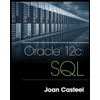(2) (a) Refer to the course notes on Algorithm Stability and note the definition for En· Using an integration by parts approach we were able to show that, En = 1 nEn-1. Once we were able to figure out a value for E₁, the above recurrence formula suggested a straightforward way to obtain whatever En values we wanted, for n > 1. However, the numerical results showed that something went terribly wrong with the computation. Explain in your own words why the computation goes terribly wrong. (b) In the course notes, we saw that a simple rewriting of the recurrence formula, and a fairly rough approximation for En, for a larger value of n, leads to an algorithm which provides very accurate results for smaller values of n. Explain in your own words why this approach work so well. (c) Implement the two algorithms in Fortran to reproduce the numerical results shown in the notes. Verify that you get the same results. (Start by editing the Stirling Approx- imation program for n! from Assignment #1.)
(2) (a) Refer to the course notes on Algorithm Stability and note the definition for En· Using an integration by parts approach we were able to show that, En = 1 nEn-1. Once we were able to figure out a value for E₁, the above recurrence formula suggested a straightforward way to obtain whatever En values we wanted, for n > 1. However, the numerical results showed that something went terribly wrong with the computation. Explain in your own words why the computation goes terribly wrong. (b) In the course notes, we saw that a simple rewriting of the recurrence formula, and a fairly rough approximation for En, for a larger value of n, leads to an algorithm which provides very accurate results for smaller values of n. Explain in your own words why this approach work so well. (c) Implement the two algorithms in Fortran to reproduce the numerical results shown in the notes. Verify that you get the same results. (Start by editing the Stirling Approx- imation program for n! from Assignment #1.)
C++ for Engineers and Scientists
4th Edition
ISBN:9781133187844
Author:Bronson, Gary J.
Publisher:Bronson, Gary J.
Chapter14: Numerical Methods
Section14.3: Refinements To The Bisection Method
Problem 4E
Related questions
Question
complete the answer and dont plagarise or use

Transcribed Image Text:(2) (a) Refer to the course notes on Algorithm Stability and note the definition for En·
Using an integration by parts approach we were able to show that, En = 1 nEn-1.
Once we were able to figure out a value for E₁, the above recurrence formula suggested
a straightforward way to obtain whatever En values we wanted, for n > 1. However,
the numerical results showed that something went terribly wrong with the computation.
Explain in your own words why the computation goes terribly wrong.
(b) In the course notes, we saw that a simple rewriting of the recurrence formula, and a
fairly rough approximation for En, for a larger value of n, leads to an algorithm which
provides very accurate results for smaller values of n. Explain in your own words why
this approach work so well.
(c) Implement the two algorithms in Fortran to reproduce the numerical results shown in
the notes. Verify that you get the same results. (Start by editing the Stirling Approx-
imation program for n! from Assignment #1.)
Expert Solution
This question has been solved!
Explore an expertly crafted, step-by-step solution for a thorough understanding of key concepts.
Step by step
Solved in 2 steps

Recommended textbooks for you

C++ for Engineers and Scientists
Computer Science
ISBN:
9781133187844
Author:
Bronson, Gary J.
Publisher:
Course Technology Ptr

Operations Research : Applications and Algorithms
Computer Science
ISBN:
9780534380588
Author:
Wayne L. Winston
Publisher:
Brooks Cole

C++ Programming: From Problem Analysis to Program…
Computer Science
ISBN:
9781337102087
Author:
D. S. Malik
Publisher:
Cengage Learning

C++ for Engineers and Scientists
Computer Science
ISBN:
9781133187844
Author:
Bronson, Gary J.
Publisher:
Course Technology Ptr

Operations Research : Applications and Algorithms
Computer Science
ISBN:
9780534380588
Author:
Wayne L. Winston
Publisher:
Brooks Cole

C++ Programming: From Problem Analysis to Program…
Computer Science
ISBN:
9781337102087
Author:
D. S. Malik
Publisher:
Cengage Learning

COMPREHENSIVE MICROSOFT OFFICE 365 EXCE
Computer Science
ISBN:
9780357392676
Author:
FREUND, Steven
Publisher:
CENGAGE L

Programming Logic & Design Comprehensive
Computer Science
ISBN:
9781337669405
Author:
FARRELL
Publisher:
Cengage
